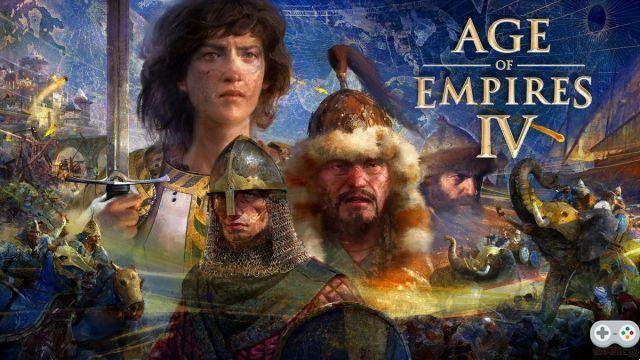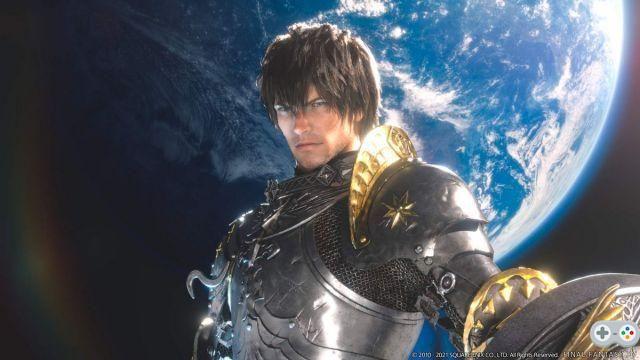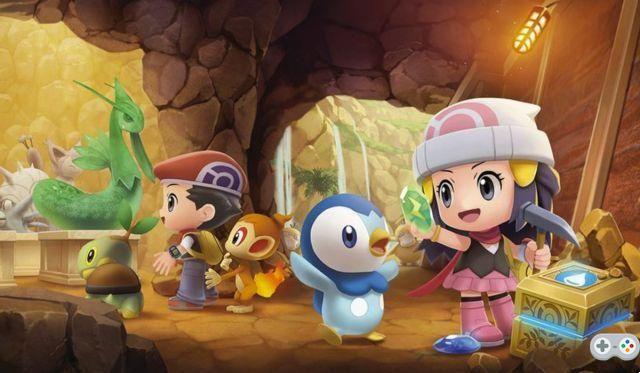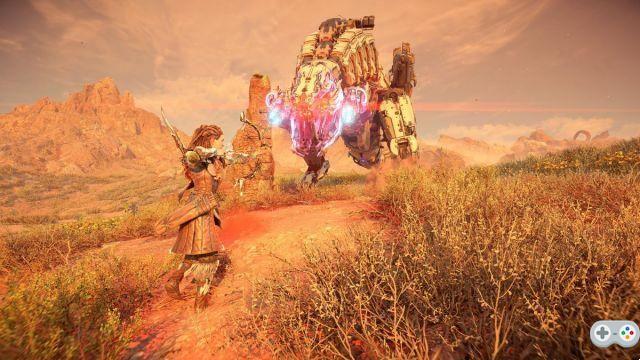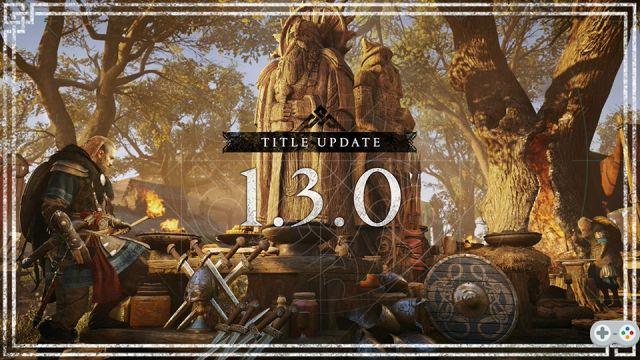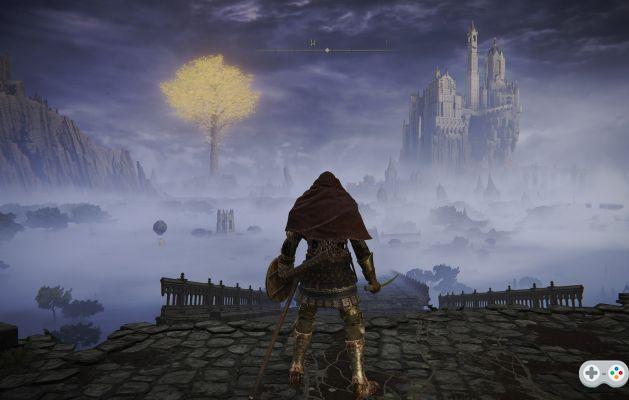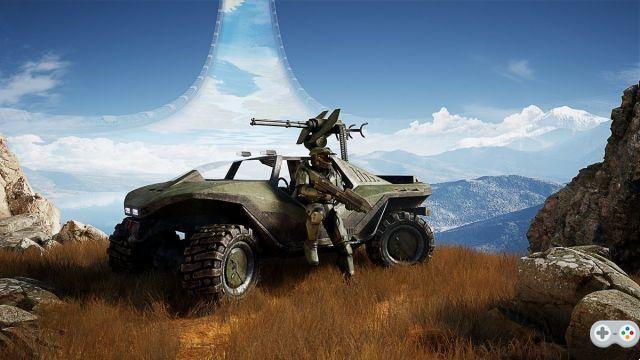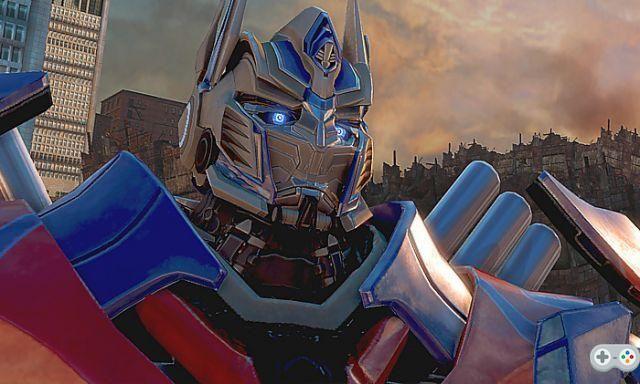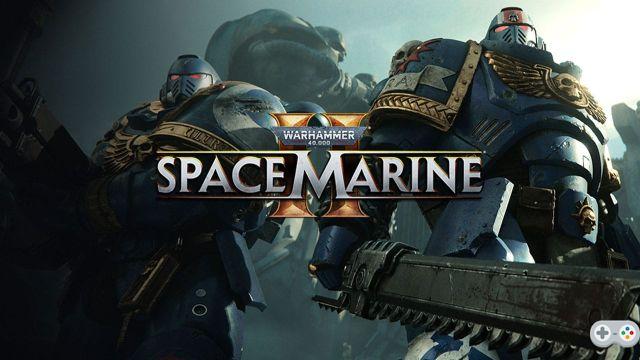
Several times pushed back and jostled on its bases by the COVID-19 pandemic, the monumental project humankind finally matured. With it comes the promise of a true competitor to the industry's heavyweight, the benchmark for 4X, the inevitable Civilization VI by Firaxis. If such a title is obviously also tested over the long term after weeks or even months of play, we have already been able to spend long hours on it, collected in just a few days to offer you this opinion, perhaps not quite definitive. humbly acknowledge.
8
 See the priceRead the conclusionHumankind
See the priceRead the conclusionHumankind
- New - and a lot - in the 4X
- Well-thought-out civilization aggregation
- Clear if somewhat incomplete tutorials
- Well seen event system
- Some bugs to fix
- Still need balancing
- Annoying notification system
- No famous people?
Behind Humankind, we find SEGA which, in the field of management/strategy, has already distinguished itself with the Total War developed by The Creative Assembly. But at the helm of this new 4X, there is above all Amplitude Studios, a (not so) small Parisian team to whom we owe the remarkable Endless Legend and Endless Space, already 4Xs. We also feel that the developers have capitalized on the successes of their previous titles for the principle and the promotion of this new site, nourishing all the same the desire to go further, to take advantage of a higher budget and to a more important experience, to titillate Firaxis, but also to offer a real, innovative alternative to Civilization VI.
Amplitude se civilise
Before going into what makes the salt of Humankind, its specificity, it is important to “set the scene” and to clarify a little what is meant by “4X”. Dreamed up by journalist Alan Emrich in 1993 randomly from his papers about Master of Orion - so after the release of the first Civilization - the expression "4X" refers to the main activities of the player on such games: eXplore, eXpand, eXploit and eXterminate, so many English terms for exploring, expanding, exploiting and exterminating. The emphasis is therefore placed on the development and rise to power of a people or a group of individuals, in competition with others.
On Civilization as on Humankind, the terrain is neither more nor less than that of humanity. In either case, we take control of a people from the end of the Neolithic to the contemporary period, or even a little further. Summarized in a few lines, the principle is ultimately simple. First nomadic, our people quickly founded their first city, explored the surroundings while imagining their first scientific discoveries. The objective is to continue this evolution until reaching the conquest of space and obviously taking care of our neighbors, whom we can confront militarily or on the diplomatic ground.

This canvas is strictly identical in most "terrestrial" 4Xs and Civilization or Humankind are no exception to the rule. We will however see that if the destination is quite similar, the journey is very different, with distinctions that we observe even before the start of the game. Humankind does not allow, for example, to start at an "advanced" age, it's the Neolithic or nothing for the Spaniards of Amplitude Studios, who however compensate with a large number of other options, some of which are moreover rather rare on this kind of games.

Things start with the choice of a character, a color and a logo… but not a people, we will quickly see why. Then, we have to establish all the standard options, with however often more parameters than with the illustrious competitor, which we will not name each time. Five sizes of the world are thus available for games with more or less players or opponents. One can choose the shape of the map, decide on the percentage of land, the number of continents, the frequency of islands and the proportion of lakes, rivers or cliffs, as well as the elevation.
In a more original way, you can opt for a flat world, with none, one or two poles, and it is also possible to activate a “New world” parameter which keeps a virgin continent. Finally, the map can be accompanied by what the developers have called a "world generation seed": the option must thus make it possible to generate worlds close enough to each other to evolve on a "similar" part. At the same time, there are also five game rhythm options to limit the number of game rounds to 75, 150, 300, 450 or 600, and seven difficulty options on which the developers are unfortunately not very forthcoming.

Era of nothing or slack period
Other options will be added later as the DLCs are released, but for now, we've done the trick. The game can then begin and we quickly understand why there was no question of choosing a people at the launch: everyone starts in the Neolithic with a nomadic tribe without any distinctive sign. From the outset, Humankind thus asserts its difference from Civilization. The pre-urban period will certainly be short, but it will have the merit of existing here.
We move our tribe unit around to get an idea of the world around us. We spot a few mountains, hills, a river... perhaps a site suitable for the first installation?
In a fun way, this – small – exploration is an opportunity to get our hands on some “curiosities” to develop our group. Gathering food increases the size of the tribe while old camps are an opportunity to make scientific discoveries, even if the word is still a bit strong. The idea is in any case to begin to understand the principle of the stars, which constitute the means of marking the progress of our civilization and the passage from one era to another, a change which was not that important. in Civilization, and which is fundamental here.
JVFR
Indeed, randomly from our exploration of these first acres of land, we increase the number of units / population points of our tribe. You can also accumulate knowledge and organize wild animal hunts. Three categories which make it possible to garner the famous stars, symbols of our success therefore. As soon as you unlock a first star, it is possible to move on to the next era and this is all the more important since each era has specific civilizations attached to it, with their specific strengths. Of course, when a civilization is chosen, no other people can select it and changing the era first therefore allows more options.
JVFR
The passage from the Neolithic to the Ancient Era is an opportunity to choose among ten civilizations: the Babylonians are focused on knowledge, the Egyptians on construction, the Phoenicians on maritime trade, the Assyrians on rapid military assaults, the Harapians on agriculture, the Hittites on outposts, the Mycenaeans on the experience of military units, the Nubians on precious resources, the Olmecs on expansion and the Zhous on stability. Each civilization has an ideological trait, a building and a specific unit attached to it. So many elements that weigh in our choice, of course.
We touch here on one of the keys of Humankind. It is not a question of controlling a civilization on the whole game, but rather a people, forged by the association of several cultures, aggregated over time. Thus, with each new era – there are seven (Neolithic, Ancient Era, Classical Era, Middle Ages, Modern Era, Industrial Era and Contemporary Era) – we find ourselves choosing, among a maximum of ten civilizations, the one that we want to associate with our people. A new ideological trait will bring a bonus of wisdom, knowledge or economics for example, and we will benefit from the structure and the unity specific to this civilization throughout the period.
JVFR
Assyrian at all
The trick of the developers is to have been as less arbitrary as possible in this change of era. As we have said, it is necessary to unlock stars to have the right to switch from one era to another, and then follows a kind of race with other peoples. However, it seems possible to take your time in order to reap more of the fruits of your success over a given period and make the most of the assets of a civilization before changing it. As always, the question will above all be to better assess the advantages and risks of such a situation, particularly with regard to our neighbours, who have entered a new era, who will undoubtedly have chosen their civilization according to the current context.
Adaptation to the situation is indeed the key word of this system of aggregation of civilizations which must considerably renew the parties. It is no longer a question of leading the Romans through 4 years of history by measuring up against the Chinese or the Zulus, but of varying the orientations of our people according to the geopolitical context of the moment. Note however that it is also possible to keep the same civilization for a second or even a third period in order to unlock an additional glory bonus. Glory is in a way the final score of a game: the more stars you unlock in each period, the more glory you earn.
JVFR
Another notable change that we discover from the passage to the Ancient Era, Humankind does not cut the map of the world in the manner of its illustrious reference. It is close here to the concept of territories dear to Endless Legend with a map divided into "zones" on which you can never build more than one city. But we put the cart before the horse: indeed Humankind still stands out with its outpost system, the first construction that it is possible to place on a territory that is still neutral. No need for a settler, any unit can undertake to launch its construction and, in doing so, to claim said territory.
JVFR
To be able to place an outpost, you must explore the territory with a unit of course, and have a certain capital of influence points. This cost increases as our empire grows, as we already control other territories. It is also more important if we are removed from any possession of our people and if the installation is done under the immediate pressure of another. The outpost requires a few game turns before being active and it then acts as a small city: it allows in particular to build extractors to take advantage of the surrounding strategic or luxury resources, build ports and certain districts.
An outpost can be "inflated" by the dismantling of units and it has the advantage of being able to be moved if necessary. Another advantage, the outpost can obviously evolve towards the city. To do this, you need to have enough population and a little patience, because it is not instantaneous, even if it is still possible to speed things up, with a few cold hard cash.
Finally, it is important to emphasize that this transformation is not compulsory and that it is sometimes more interesting to attach an outpost to a neighboring city: the operation costs a little influence and the resources of the two entities are then merged.
Developers revisit endgame game options © Amplitude Studios
Cultural soil and harvest of stars
Here, we have just described only the first minutes of a game and, already, the possibilities seem innumerable! Better, without it necessarily being a question of “better” or “worse”, these options seem to noticeably set Humankind apart from the Civilization style with cities whose placement is just as important… but different. Of course, it is always a question of placing a city according to the resources produced, but claiming this or that territory before a neighbor is crucial. On the other hand, this way of approaching the installation of cities – only one per territory – may disconcert some players, yours truly the first.
As soon as the first cities are in place, we can consider that the game starts and, with it, the famous quest for the NIAS. By this acronym, the developers designate the main resources: Food, Industry, Money and Science. These NIAS are produced by the cities. Food prevents famines – bad for our stability – and a surplus allows the increase of the urban population. Industry determines the production level of buildings and units. Money needs little explanation other than to say that it speeds up construction. Finally, science serves to unlock technological progress.
JVFR
Be careful however, as in any 4X, multiple safeguards prevent us from developing too quickly and it is obviously not enough to "stack" the cities to win. First, in order to represent the communication difficulties of an ancient era, the maximum number of cities under our control depends on technical progress: exceed this limit and significant penalties arise, at the risk of provoking endless revolts. Moreover, we are not alone on the planet and our expansionist desires will quickly come up against the ambitions of our neighbours.
JVFR
Finally, let's insist on the fact that, in Humankind, it is sometimes preferable to associate outposts with a city rather than promoting them to the rank of town. This makes it possible to hold more powerful cities, more able to quickly produce military units for example. Here, we come back to a debate that has always agitated Civilization players and will not leave those of Humankind indifferent: should we favor many small, moderately powerful cities or two or three sprawling blobs? Note also that the loss of a city does not mean the immediate loss of all the outposts attached to it.
But to talk about that, we obviously have to talk about conflicts, because who says "4X", says "wars" and at this level also, Amplitude Studios has done things well. The studio first offers a kind of "game within the game" since in the manner – all things considered – of a Total War, we will lead our troops on the battlefield. In Humankind, war is the consequence of irreconcilable positions between two peoples. One can give the impression of pushing open doors, but this is important because it is quite possible, before leading to war, to exert diplomatic pressure on one's adversaries.
JVFR
JVFR
Choose the Huns first
At this level, Humankind is more complete and ambitious than Civilization. For example, when an opposing unit enters our territory, it grants us a “reason for discord”. It can also be obtained by other means and the idea is then to speak to the people in question in order to initiate a diplomatic exchange. Reparations may take the form of financial retribution, but it may also be a pretext to be “in one's right” and then declare war. The diplomatic richness of a Humankind is interesting, even if for the moment, the AI does not seem to us to make full use of it.
Two peoples can be unknown, at peace, at war, allies or vassals of each other. Statutes that define the exchanges that can be set up with our neighbours. Throughout the game, our choices and actions reflect on our diplomatic reputation, and betraying the trust of our allies will not help us gain credibility in future negotiations. The same goes for a people accustomed to plundering the trade routes of others for example. Conversely, one can become a "hero" in the eyes of the world if one declares war on a traitor. in short, diplomacy in Humankind is a fun cause/consequence game.
JVFR
In addition, to this essentially military aspect must be added a more commercial diplomacy and here we touch on one of the most important subjects of the game: the management of special resources, said to be luxury or strategic. Again, we are getting closer to what Civilization offers, but with subtle nuances. On the territories, “deposits” of these special resources are identified. It is then possible to build extractors which will allow their exploitation. If luxury resources primarily serve the well-being of the population and the wealth of our empire, strategic resources are even more important.
JVFR
Some buildings or units require these resources. A cavalry of scouts implies having access to a unit of horses for example. Note that it is not necessary to produce it: it is possible to buy it from another people who do not lose their access by monetizing it in this way. Problem, the battleships require three of iron and three of coal and, there, Humankind shoots itself a bit in the foot, especially on the “small” maps. On one part, we noticed that only three coals were present: the war logically prohibiting access to the resources of the other, we could only produce one battleship!
If it's a will of the developers, we don't quite understand, but maybe it's only related to a necessary balancing. Make no mistake, despite the time taken by Amplitude to polish their game, there is still work to be done. We have for example the strange impression that certain civilizations are much more powerful than others and that certain marvels constitute, so to speak, obligatory passages. Note also that the artificial intelligence seems to manage certain battles in a very strange way because, yes, we got a little lost along the way and we then have to return to what we call this “game within the game”.
JVFR
JVFR
Shah of Persia and Siamese people
As soon as a war is declared, but also when in the Neolithic period animals are attacked or, later, “barbarians” appear on the map, you have to fight. Humankind allows you to play the battles manually or automatically: it "rolls the dice" for us and displays a table summarizing the battle... the expression Pyrrhic victory can then have its full meaning since our army of six units can get away with it. shoot with five losses to defeat only one opposing unit! In Humankind, there is no question of a “death pile” as in Civilization IV, but armies can contain between two and eight units – or even a little more. They move as a single being and form a common front.
During manual battles, Humankind does not zoom in on the map, which remains the same as for the “normal” game – perhaps not the most coherent way – but it offers us to deploy the troops: we then place our units and the fight can begin with its movements, its attacks and its turns. The interest is to participate in a kind of small game of chess where with a little common sense – and a bad AI – it is still possible to reverse a situation that was not necessarily well underway. Imperfect, this system has the merit of being far more ambitious than what Civilization has offered us for so many years.
JVFR
Rather than launching into battle, it is still quite possible to request a retreat, which the AI also abuses: we then witness the flight of the threatened unit... sometimes even to the heart of our own empire. ! Again, things are not very consistent, but it should be able to be corrected quite easily.
One point that requires no correction seems to be the trade. It is relatively simple, but well thought out: it is a question of maintaining good relations with a people and simply clicking on the coveted resource to see the cost of this trade route and decide if the game is still worth the candle.
JVFR
We would still have a lot to say about Humankind to address pollution, religions or doctrines defining, little by little, the orientation of our society beyond civilization alone. It would also be good to come back to influence, which symbolizes the global impact of our people: a good way to exert pressure or obtain a reason for discord linked to a territory on which we have views. Conversely, being in the sphere of influence of another people can have advantages: one can then take advantage of technological osmosis and acquire some of their scientific knowledge, for a fee of course.
JVFR
As it stands and despite a few small gray areas, Humankind already seems remarkable for its richness and options intended to vary and renew the games. Before concluding, however, we must mention the technical realization of a simply magnificent game. The soundtrack is marvellous, but it's mainly the general aesthetics of the map, the technology tree or the event boards that struck us. It's too early to say if it's the best, but Humankind is probably the most beautiful game of civilizations, even if it is subject to a few bugs and loading a little long on modest machines.
Interview: the origins of world music with composer Arnaud Roy
JVFR
What would Humankind be without quality music capable of transporting players for dozens and dozens of hours? A real challenge, brilliantly taken up once again by Arnaud Roy.
Meeting with the prolific composer… [Read more]
Humankind: the opinion of JVFR
How difficult it is to offer a definite opinion after such a short playing time to lead our different civilizations towards the light. As we said in the introduction, we should not freeze on our note "of the moment" to judge the qualities and weaknesses of a title as ambitious as this Humankind. However, in the current state of things, we have already been thrilled as rarely in front of this 4X which rethinks a number of concepts, tries things, innovates where Civilization itself only brings small touches to a well-oiled mechanism.
Of course, the fan of Sid Meier's game will find certain cogs essential to this mechanism of evolution over several millennia. But Humankind seeks to go further with, as a high point, the principle of aggregation of civilizations to end up with a people that is less easily identifiable, but also much less stereotyped. Since perfection is not of this world and beyond the notification system to review or minor balancing problems, we regret the absence of famous characters, especially on the battlefield. Despite everything Humankind is a real success.
humankind8
When you embark on a project as ambitious as Humankind, there are bound to be a few hitches, but Amplitude Studios manages to offer us an exciting alternative to the 4X already available, incredibly time-consuming however!Most
- New - and a lot - in the 4X
- Well-thought-out civilization aggregation
- Clear if somewhat incomplete tutorials
- Well seen event system
- Mountain of implications on every choice
- Rich and interesting diplomacy
- Original combat management
- A beautiful aesthetic
The lessers
- Some bugs to fix
- Still need balancing
- Annoying notification system
- No famous people?
- Few multiplayer options?
Test carried out from a PC code provided by the publisher.




